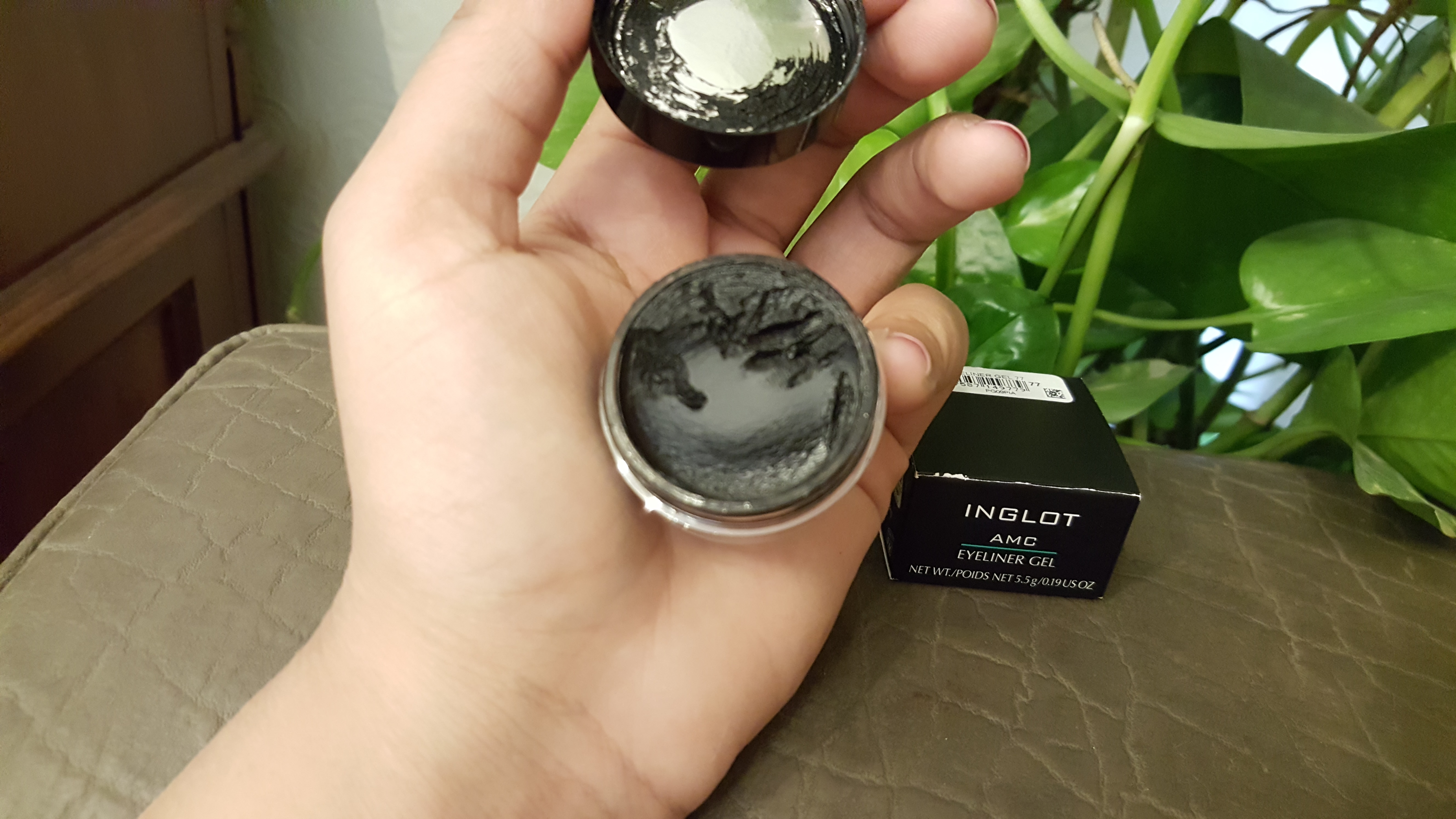Inglot Amc Gel Eyeliner – 77

Brand Name: INGLOT
Shade: Black
Finish: Super Matte
Overall Rating: 4.9/5
Packaging Highlights
- Comes in a small card box with the pot inside
- The product itself is contained in a plastic glass pot covered with a black lid
What I like about INGLOT AMC GEL EYELINER – 77?
- Intense black shade
- Matte finish
- Intense pigmentation
- Smudge proof
- Budge proof
- Does not transfer
- Easy to create a perfect sharp winged eyeliner due to creamy consistency
- Super creamy consistency
- Dries instantly
- Hypoallergenic
- Intense payoff with only one sweep
What I don’t like about INGLOT AMC GEL EYELINER – 77?
- The product dries fast in the pot if left opened for even a short while
- Loses its creamy consistency when exposed to air for more than 5 to 10 minutes
My thoughts on INGLOT AMC GEL EYELINER – 77?
Let me tell you guys my vision of an eyeliner is something that is intense black, highly pigmented, super matte and long lasting which I hardly ever found in all the eyeliners I have ever used previously except, of course, my top favorite Tarteist Clay Paint eyeliner. That is still the no.1 in the category and no, this did not replace it. Both of these are my go to eyeliners these days and a staple in my eyeliner collection. Since the formula is so creamy and buttery it is so easy to create a sharp winged liner without any hassle. The Tarte one only lost few points in the rating section due to the packaging. This is a perfect packaging but it might come across as unhygienic for some. I don’t really mind it to be honest. I find it really convenient to dip the brush in a pot and apply like a pro. Coming back to the comparison of this and Tarteist both stay on the same score for what they deliver in terms of application and formula. This stuff is awesomeness in a pot! Comes in a variety of colors to choose from.
<3 <3 <3
Company Claims:
100 % GENUINE CLAIMS!!!
High intensity pigments provide ideal coverage and rich colors after just one application. The creamy and delicate long lasting formula dries to a long lasting, smudge proof, and crease proof finish.
Hypoallergenic, waterproof.
What is it made of?
Trimethylsiloxysilicate, Isododecane, Cyclopentasiloxane, Polyethylene, Phenyl Trimethicone, DisteardimoniumHectorite, Propylene Carbonate, Caprylyl Glycol, Phenoxyethanol, Hexylene Glycol, [+/-(may Contain): Boron Nitride, Calcium Aluminum Borosilicate, Lauroyl Lysine, Mica, Polyperfluoromethylisopropyl Ether, Silica, Synthetic Fluorphlogopite, Tin Oxide, Triethoxycaprylylsilane, Red 40 Lake (ci 16035), Yellow 5 Lake (ci 19140), Blue 1 Lake (ci 42090), Carmine (ci 75470), Aluminum Powder (ci 77000), Ltramarines (ci 77007), Black 2 (ci 77266), Chromium Hydroxide Green (ci 77289), Iron Oxides (ci 77491, Ci 77492, Ci 77499), Ferric Ammonium Ferrocyanide (ci 77510), Manganese Violet (ci 77742), Titanium Dioxide (ci 77891)].
By : Natural Health News









